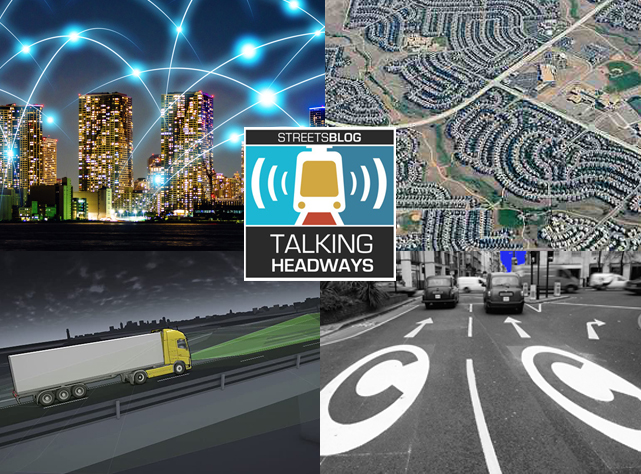This week, we're joined by Laura Schewel, co-founder and CEO of Streetlight Data, and Carlo Ratti, director of MIT's SENSEible City Lab, to talk about what we've learned from data during the pandemic. They also chat about what it would mean for infrastructure to be optimized if we rescheduled cities in a way that works for everyone at all times and what surprised them about travel behavior and urban life during the pandemic.
If you prefer to read rather than listen, a partial transcript is below the audio player. A full, unedited transcript is here (though it may have some typos).
Jeff Wood: In transportation, I think a lot of people are expecting big changes with technology specifically in curb management and parking space management and access management to city centers, such as congestion pricing, but most of those are so focused on congestion and motor vehicles that I think sometimes we forget the people aspect of moving in cities and places. A lot of the discussion, even the EV discussion, is all about cars and vehicles rather than the purpose of electrification is that you can have vehicles that are not polluting and move more people around. Is there a way to talk through the pure vehicle discussion to a discussion about humans?
Laura Schewel: I think there is a way, but also keep in mind that this is the American "Jobs" Act and classically, it is much simpler to explain the connection of auto manufacturing and concrete infrastructure and their connection to jobs. And I understand, of course, it’s easier to explain that, but I also think the jobs potential for the silicon part, you know, the software and the infrastructure and the decision support is also immense. And that creating bike lanes also makes a lot of jobs and parks also creates a lot of jobs. So I think it’s beholden on us. Biden has been very clear that the terms he wants to talk about is jobs. And I think it is beholden on us if we want to get it passed to frame it in that way as well.
But I love the point Carlo makes that one of the challenges we’ve had as people trying to make government smarter is money is so limited. Like there could be $1 billion available to expand a highway, but an agency is literally not allowed to spend $50,000 or $75,000 to do analytics, to figure out if they should expand the highway at all. So allowing more flexibility and allowing infrastructure decision support, as well as the physicality of the infrastructure itself to be spent on, that is just so critical. It’s wonky and nerdy, but it really holds up a lot of important change.
Carlo Ratti: When you think about infrastructure, people often think about best practices, but basically "best practices" locks the future into the past. You’re looking at the past and asking, "What worked well?" And then you use that in order to design for a future. And I believe that here, you know, going back to your point about mobility and looking more at people, we have many new technologies. Micro-mobility, for example, actually makes mass transit much more competitive because you can jump off the subway and then jump on a scooter to the last mile. There are other innovations that are happening now in the space of delivery and logistics, for example, that can lead to smaller vehicles. Otherwise our cities are just going to be congested because of all the delivery trucks moving around.
So perhaps we should use what we were saying before this trial-and-error approach, testing something we're seeing that happens with venture capital. You try something small stage to see if it works. And if it works, you grow to the next level and then to the next level. It's very different than how we’ve done infrastructure into the past. This is very, very needed today, because the infrastructure of tomorrow might be very different than the infrastructure for yesterday.






